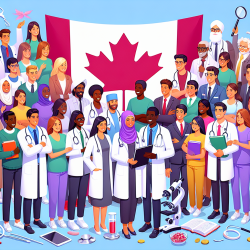Understanding Fairness in Medical Resource Allocation
The allocation of scarce medical resources is a perennial challenge in healthcare. The debate centers around how to distribute these resources fairly and efficiently, especially when demand outstrips supply. The research article "One and done? Equality of opportunity and repeated access to scarce, indivisible medical resources" by Marco D. Huesch explores this complex issue, offering valuable insights for practitioners.
Key Findings from the Research
The research highlights the ethical dilemma of whether past receipt of a medical resource should influence future allocation decisions. The prevailing ethical guidelines suggest that past receipt should not be a factor, advocating for a lottery or first-come-first-served approach to ensure equal opportunity. However, the study challenges this consensus by presenting evidence that public views and patient preferences often perceive repeated access as unfair.
Implications for Practitioners
Practitioners in speech-language pathology and other healthcare fields can draw several lessons from this research:
- Consider Public and Patient Preferences: Incorporating the views of stakeholders, including patients and the public, can lead to more equitable allocation policies. Practitioners should advocate for policies that reflect these preferences.
- Prioritize First-Time Recipients: The study suggests that prioritizing those who have not previously accessed a resource may be perceived as fairer. Practitioners can support policies that give first-time recipients a higher priority.
- Utilize Data-Driven Approaches: Data can provide insights into patient needs and preferences, helping to inform fair allocation decisions. Practitioners should leverage data to advocate for evidence-based policies.
Encouraging Further Research
The study opens the door for further research into how fairness can be operationalized in healthcare resource allocation. Practitioners are encouraged to contribute to this research, exploring how different allocation models impact patient outcomes and perceptions of fairness.
Conclusion
Fair allocation of scarce medical resources is a complex ethical issue with significant implications for healthcare delivery. By considering public and patient preferences and prioritizing first-time recipients, practitioners can help create more equitable healthcare systems. Further research is needed to refine these approaches and ensure that they lead to better outcomes for all patients.
To read the original research paper, please follow this link: One and done? Equality of opportunity and repeated access to scarce, indivisible medical resources.










